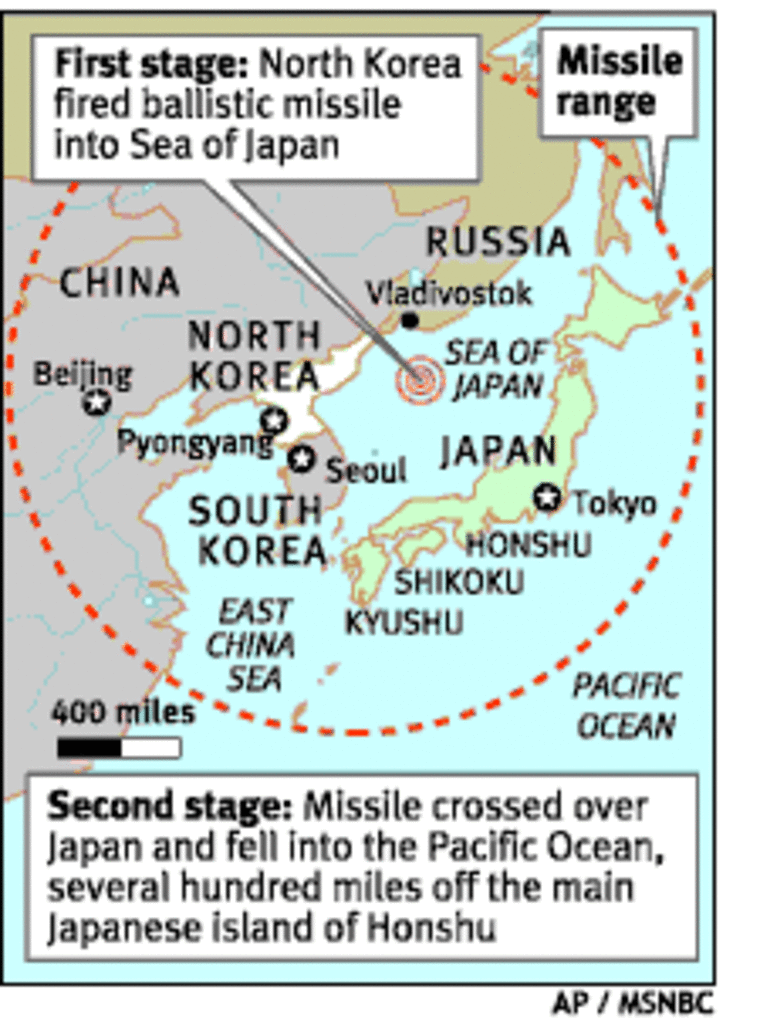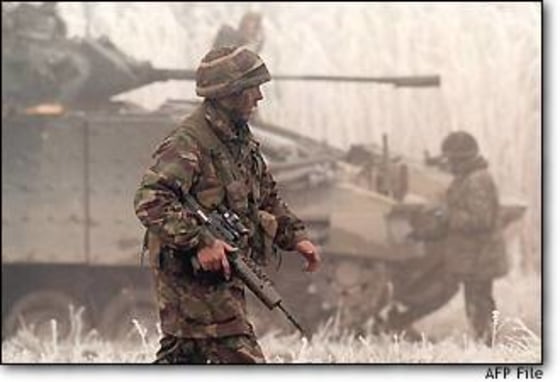“They’ll be home by Christmas,” the pundits predicted of pro-impeachment forces who brought their case to Congress. But alas, it was not to be so. “No one wants this to drag on beyond January” we were told next, again, to no avail. Now, with the anointed sages of the American media again claiming to spy “the light at the end of the tunnel” of adulterous love, let’s look what the rest of the planet has been doing since America’s political class has been trying to find a suitable way to acquit President Clinton.
HOW ASTOUNDING it is to live in this America of ours at the end of the 20th century. Barely ten years ago, even the lowliest member of Congress had to feign some knowledge of world affairs. After all, there was an Evil Empire on the loose. Complacency was the equivalent of, well, communist sympathizing.
These days, the world’s “sole remaining superpower” has better things to do than worry about the fate of humanity. So invulnerable is the Goliath on the cusp of the millennium that its entire political leadership can afford to take off months at a time to play their parts in a political television drama whose final act was finished by the script-writing committee months ago.
Meanwhile, the world just keeps on turning. For the benefit of those engrossed in the cottage industry of impeachment, here’s what has been going on in the rest of the planet.
IRAQS IN THE HEAD
People of good conscience can disagree on whether Iraq should be the main preoccupation of American military and security policy. What seems less controversial is the idea that Washington long ago lost its way in the Persian Gulf.
As things currently stand, U.S. and British warplanes have been attacking Iraqi missile sites virtually daily for the past several weeks. The long-term purpose of these attacks remains unclear. Iraqi missile sites have been hit and the attacks forced the withdrawal of some of the more sophisticated batteries recently. But the ugly calculus still favors Saddam: should one Allied plane be downed, any losses Saddam’s unfortunate people suffer will have been deemed a propaganda victory for him.
Meanwhile, UNSCOM, the United Nations special commission charged with finding and destroying Iraqi weapons of mass destruction, is all but dead. A four-day air campaign targeting some of the sites UNSCOM was never able to penetrate may have destroyed some, but even U.S. military experts acknowledge the ability to create them cannot be “bombed” away. Meanwhile, Scott Ritter, a renegade former UNSCOM inspector (and sometime MSNBC news analyst) confirmed that the U.N. inspection teams were working in tandem with the CIA and other spy agencies.
The only real debate in Washington over any of this came during a recent Senate Armed Services committee meeting when Sen. John McCain, a former bomber pilot and Vietnam-era POW, challenged the administration’s policy of risking the lives of American flyers daily over Iraqi missile batteries. In return, Gen. Henry Shelton, chairman of the Joint Chiefs of Staff, told McCain and his Republican colleagues that their own pet project - arming an Iraqi opposition army to overthrow Saddam, smacks of the Bay of Pigs and has no military validity.
Ironically, both of them are probably right.
AFRICAN BUST
Much was made last year, during President Clinton’s journey through Africa, of the “new African leaders” who promised to lead a renaissance on the world’s least fortunate continent.
First, the good news: Nelson Mandela, hero of South Africa’s peaceful shedding of apartheid, is preparing to hand power to a new government to be elected in May. In African terms, this is earth-shattering.
Even more astounding, Nigeria, the giant of sub-Saharan Africa and a near-perpetual dictatorship, holds elections on Feb. 27. A democratic Nigeria would be an amazing development - if it lasts.
Unfortunately, democracy has proven to be less than a complete solution in Africa. Clinton learned this the hard way.
While in Africa last year, the president hailed the new, popularly elected leaders of Ethiopia, Eritrea, Sierra Leone, Liberia, Uganda and, of course, South Africa. He spoke with hope of the successful overthrow of Zaire’s Mobuto Sese Seko by Laurent Kabila and of the U.N. monitored peace process in Angola, where once the U.S. and Soviet Union armed and trained rival armies.
Since then, new rebellions and new atrocities have occurred in Congo (formerly Zaire) and Sierra Leone. Uganda and Rwanda have sent troops into Congo to overthrow Kabila, while Angola and Zimbabwe sent troops to battle them. Analysts are calling it “Africa’s World War I.”
Last week, Ethiopia and Eritrea, both counted as allies of the United States, resumed combat in a war that began last summer. In Sierra Leone, the democratically elected leader praised by Clinton has been under attack by a rebel movement backed by the democratic leader praised by Clinton from neighboring Liberia.
SPUTNIK 98
Defying all attempts to treat its regime as rational, North Korea last autumn lobbed what can reasonably be called an Intercontinental Ballistic Missile (ICBM) over Japan into the Pacific Ocean. The country, the last bastion of Stalinism on the planet, claimed it actually had launched a satellite into orbit.

Japan, against all its post-war patterns, actually threatened offensive military action against North Korea - the first time since the Battle of Leyte Gulf in 1944 that such a threat from Tokyo had to be taken seriously.
And the United States?
In response to this Pyongyang Sputnik, the United States redoubled its efforts to convince the North Koreans to abide by the 1994 nuclear proliferation deal it signed, a deal with has the U.S., Japan and South Korea building a nuclear power plant for the north.
BRAZIL AFFLICTED
Remember the “Asian flu?” Well, it has mutated. After tearing through East Asia and then afflicting Moscow, the bug has planted itself firmly in the Brazilian rain forest.
Brazil’s President Henrique Cardoso made a career of fighting inflation, making a strong currency, the real, his battle sword. The virtual collapse of the currency’s value since the New Year has thrown a scare into world markets and reminded many that Asia’s troubles are the world’s troubles.
Last weekend, U.S. Treasury Secretary Robert Rubin warned that Brazil’s economic health was a key component of continued U.S. growth. Latin America, he noted, would take its cue from Brazil, and Latin America today makes up an enormous export market for American goods. Brazil’s crisis is likely to abate in the next few weeks as the country shuts down for Carneval. But when the masks come off again, watch out.
BALKAN SALAD DAYS
Three years and counting. That’s how long 8,000 American troops have been patrolling the cease-fire lines of Bosnia’s bloody battlefields - and still the men most culpable, Bosnian Serb President Radovan Karadzic and his military commander, Gen. Ratko Mladic, live in luxury.
NATO, fearful of sparking any retaliation against their forces that might lead political leaders to pull the troops out, has not arrested the two indicted war criminals.
Meanwhile, a stone’s throw away in Kosovo, Serb and ethnic Albanian radicals continue to murder each other - in the Serb case, with the blessing of the state - all in the name of an ethnically pure homeland.
NATO prevaricated throughout 1998 and finally, in January, issued a threat that forced both parties to the negotiating table. Almost unremarked, the threat set a new precedent: NATO is now a full-fledged, “out-of-theater” peace-making organization.
Kosovo negotiations are now underway outside Paris in a 14th-century chateau. True, it’s no army base in Dayton, Ohio, but NATO is hoping that the Serbs and ethnic Albanians will ultimately tire of their splendid surroundings and agree, under duress, to refrain from murdering each other for three years.
Just in case, NATO has promised to bomb Yugoslav military targets and blockade the Adriatic Sea supply lines of the Kosovo Liberation Army rebels. Thus does post-Cold War diplomacy make peace. Meanwhile, NATO politicians are arguing over the composition of the 30,000-strong peacekeeping force expected to be deployed in Kosovo if a pact is reached. But don’t worry. Like the impeachment battle, the Bosnia mission and World War I, too, the troops will all be home for Christmas.
Michael Moran is MSNBC’s International Editor.
